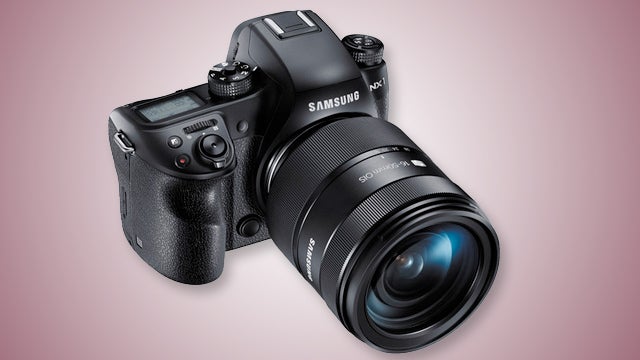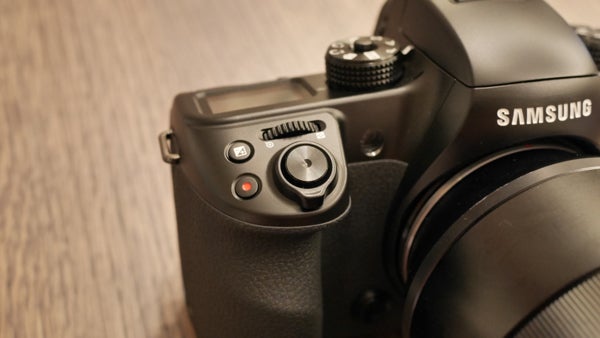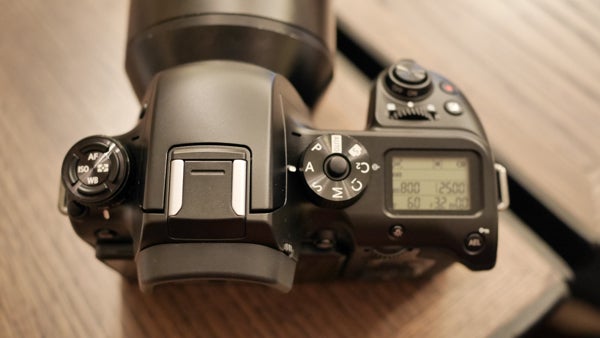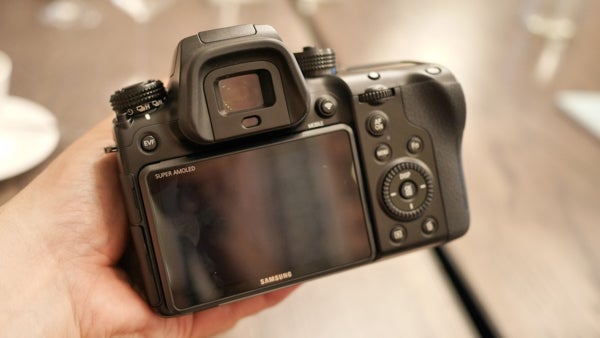Samsung NX1 Review - AF and Performance Review
AF and Performance
The first camera with an APS-C BSI sensor makes an impressive debut

Sections
- Page 1 Samsung NX1 Review
- Page 2 AF and Performance Review
- Page 3 Image Quality and Verdict Review
Samsung NX1 – Features
As well as cramming in screen and EVF features aplenty, the Samsung NX1 is the first CSC to offer Bluetooth in addition to Wi-Fi and NFC. This gives you yet another way to transfer photos between the camera and mobile devices.
Its Wi-Fi is more advanced than most, too – you get 802.11ac compliance, offering better range and faster transfer rates.
This extra headroom lets the Samsung NX1 stream Full HD video wirelessly, a feature that’s intriguing even if – like Bluetooth – it’s likely to be ignored by a fair chunk of NX1 buyers. Still, its dedication to innovation is impressive.

The Samsung NX1 also offers support for UHS-II memory cards, which offer incredible read/write speeds that embarrass the Class 10 cards you probably still have stashed away somewhere, or even still use. Write speeds of up to 260MB per second sound like overkill, but act as a sort of insurance policy when you push the NX1 to the limits. Not only is its shooting speed incredibly fast at 15fps – something we’ll look more closely at later – but it also lets the camera shoot video at DCI True 4K (4096 x 2160) 24p without needing to worry about the card becoming a bottleneck.
With so many areas where the Samsung NX1 is ahead of the competition in tech terms, this is a real camera of the future. It makes cameras such as the Nikon D810’s inability to shoot video at 4K resolution and lack of wireless features seem hopelessly inadequate.

Samsung NX1 – Performance
The Samsung NX1’s tech-centric style results in quite brilliant performance. It’s down to the new DRIMe V processor, which Samsung says is three times faster than the previous DRIMe IV processor.
It offers burst shooting at 15fps, with continuous autofocus and RAW-plus-JPEG capture. This is incredibly fast, beating even sports and action DSLRs like the Nikon D4S, which shoots at 11fps and costs thousands more than the Samsung NX1.
Progress in this sort of processor-dependent area is predictable, but the extent to which the NX1 flattens the competition is alarming. The Canon 7D MKII tops out at ‘just’ 10fps, and we were pretty impressed with that.
We found that we could shoot at 15fps with RAW and JPEG capture for about five seconds before the Samsung NX1 took a break to store and process the files. This should give you enough scope to ensure you more-or-less never miss that crucial action shot – not to mention have reams of shots to pick from.

Samsung NX1 – Autofocus
The autofocus matches the shooting speed, too. The Samsung NX1’s hybrid AF system is fast, reliable and – no surprises here – technologically advanced.
It offers 205 phase-detection points, 153 cross-type, and 209 contrast-detect points. Virtually the whole of the frame is covered, providing fantastic focus flexibility. We noticed no focus hunting, and performance stays excellent even in low lighting.
Samsung says the NX1 AF system is designed to be able to work in lighting as bad as -4EV: virtual darkness. There’s also an AF focus-assist light, which makes focusing in these sorts of conditions feasible. It’s advanced, not magic.
The one shooting limitation of the Samsung NX1’s hardware is that the body itself does not offer optical image stabilisation. Instead, OIS is built into some Samsung lenses. Make sure you take this into account before picking a lens to go with the NX1.


